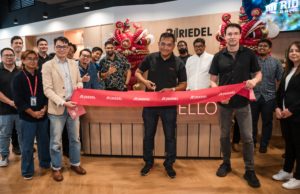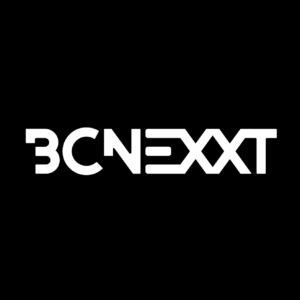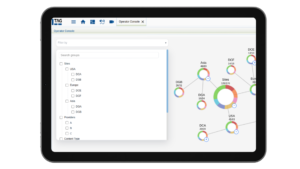
Chris Smeeton
CEO, Argosy
Argosy was founded in 1984, originally to supply broadcasters and systems integrators with cables and connectors. Today we are known as infrastructure solutions specialist and have rapidly expanded our portfolio in recent years, with an extensive range of products and services, including racks, power management, conversion devices and KVM technology - and we serve a number of industries alongside broadcast - such as Pro-AV and IT.
But the guiding principle of the company is still the same: we aim to be very responsive to our customers by predicting their needs and having what they need in stock, so we can deliver it when they need it. To meet that goal defines the shape of our business and it’s always been the people we employ that has been key to our success.
The ‘founding fathers’ of Argosy, Ken Eckardt and Mike Purnell, wanted the company to have a family feel, to be one team all pulling in the right direction and three years after the company was acquired by IEWC, in 2018 our MBO meant that Josh Simons and I could resurrect this original work ethic.
One initiative that Ken and Mike had – and which I re-introduced when I took the business over with Josh – was the group bonus system. We do not give our sales staff commission, but everyone gets a share of the profits.
My first grown-up job was in the kitchen of a restaurant, and I remember feeling aggrieved that I never saw any of the tips. This is the same thinking: a picker in the warehouse is just as important to our success in business as someone in sales or accounts, so everyone benefits in exactly the same way.
We are a relatively small company, but we still try to do things in the right way. We are an ISO9000 accredited company and we have a comprehensive online procedures manual. Like all businesses, we are in continual improvement: we are currently introducing a new CRM system, and have pledged a number of sustainability goals.
We also want everyone to recognise that we are proud to be a part of the broadcast and media industry. All the staff are aware of our involvement in organisations like the IABM and RTS. For this year’s Media Production and Technology Show we registered all our internal sales and technical teams and encourage them to attend, to see what is happening in the industry and to get a chance to meet the customers.
Our staff tends to be very loyal: we average more than 10 years retention, which is great. And it is changing…we are now about 60/40 male and female.
But even with very low staff churn, growth means that we have to recruit. My feeling is that generally you can teach people about the products and the job: it is identifying those with the right attitude that is hard. We start by talking to our existing team and asking them if they know of anyone who might fit in – they know who they want to work with.
We also have close relationships with our suppliers, so we can be sure they can give us what we know our customers will want. Companies like Draka-Prysmian make cables to our specification, because we know that will do the job.
Then we need to be sure we have the right level of stock, in our main warehouse in rural Buckinghamshire, our Middle Eastern office in Dubai, and our joint venture in Kuala Lumpur. And of course we need internal sales people to take and process orders, and people on the road to keep an ear to the ground. By being close to our market means we know what is coming, which means we know the technical demands so we get our suppliers to create even more appropriate products, and so it goes around.

How does all this translate into a corporate culture and how did the pandemic change how we work as an organisation? Most obviously, we are limited in how much working from home we can do: pickers have to be in the warehouse; you cannot splice and polish fibre camera cables on your kitchen table. But sales, accounts, and other back office people – including me – can work remotely and that is what we did when we had to.
Today there is a mixed response to how we work. Some staff found it difficult to go back to being in the office. Others found that, after a couple of weeks of being back at their desks and interacting directly with colleagues, they fought back when I tried to send them home over a recent uptick in covid rates!
We have a long-established practice of a Monday morning meeting across the departments, so everybody knows what is in the diary, where the pinch points are going to be, and where we might need to all pitch in to get a job out.
During the worst of the pandemic these Monday morning meetings were on Zoom. Now we are all keen to do them face-to-face, and while we have a general rule that staff can be away from the building can work from home as they need to, we encourage everyone to be in on a Monday as a routine.
The real benefit of these weekly chats is that it eliminates the silo problem. Every department understands what is going on, how the business is performing, and where the threats lie. Everyone appreciates knowing what is going on, and it has a real positive impact on productivity and understanding.
My other big concern about working from home is that you lose sight of the people in the job. Everyone can be cheerful and positive on a weekly Zoom call, but if you are in the same office, day after day, you get to know when someone is not right, when they might be having problems or feeling unwell.
When you are together, if someone spots something it is much easier to have a friendly word. If we know there is a problem then we can find a way to ease it.
It is a bit of cliché in our industry, but I really believe that we are in a people business. We promote from within the business, and most members of our management team – including me – have come through the ranks. We have a board member who has been a customer and a supplier in the past.
Add in the partnerships with our vendors, some of which stretch back 20 years or more, and I think we must be doing something right.









